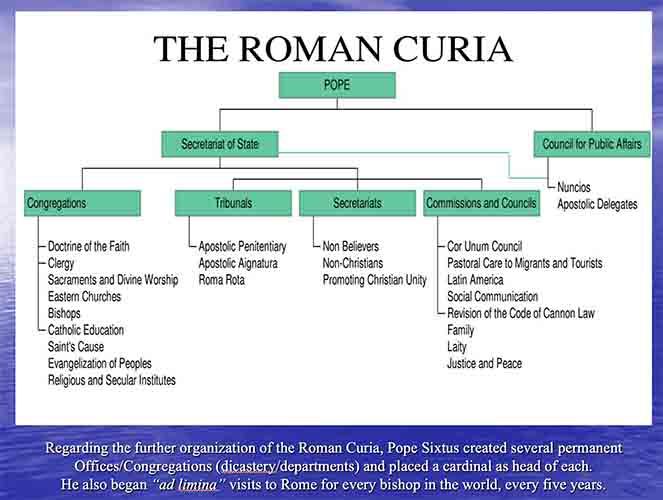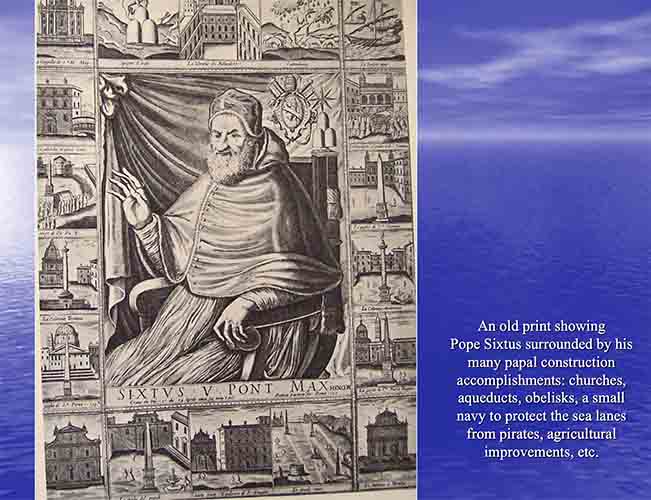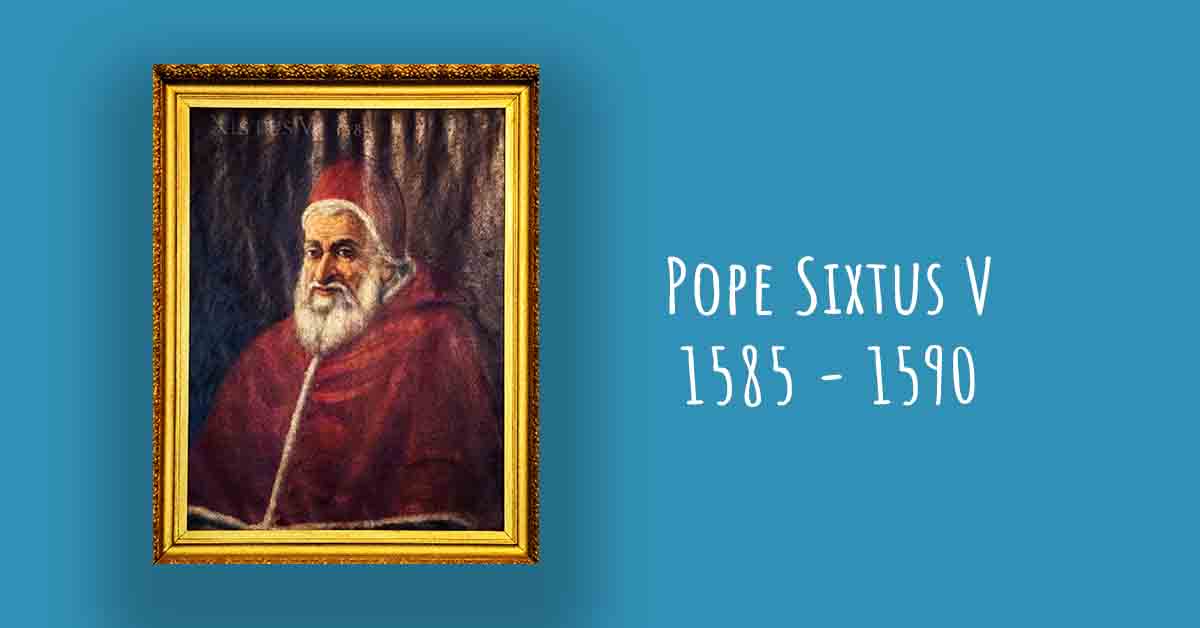Franciscan Popes - Part 8
(An excerpt from a presentation by friar Joseph Wood OFM Conv.
Read the introduction to this series
Read Part 2 of the the series: Pope Gregory XI?
Part 3: Pope Nicholas IV
Part 4: Pope Alexander V
Part 5: (pope) Nicholas V
Part 6: Pope Sixtus IV
Part 7: Pope Julius II
Part 7b: Cardinal Nephews)
Legend says that when Felice was still a child, a wandering gypsy woman prophesied that this peasant boy would become a pope.
Felice’s uncle, a Franciscan, sent him to be educated by the friars in nearby Montalto. As a friar, he became a doctor of theology and maintained a reputation as a fine preacher. On one occasion he attracted the attention of the Cardinal Protector of the Order, who had him preach the Lenten services for Pope Julius III. His zeal for clerical reform, following the dictates of the recent Council of Trent, gained him appointments to commissions for that purpose. As a cardinal he worked strenuously for Church reform with two friends, both of whom became popes, Paul IV and St. Pius V.
Felice Peretti was unanimously elected pope in 1585, and as Pope Sixtus V he began an unprecedented reform of the clergy and an up-grading of the academic standards in the colleges of Rome.
Sixtus V was a genius with government administration and urban planning. He reformed the Roman Curia into offices or “Congregations” for various disciplines (liturgy, doctrine, missions, etc.) and also placed a cardinal as the administrative head of each Congregation. He decreed that all bishops should give detailed reports of their dioceses to the pontiff in person. This began the ad limina visits every five years.

Turning his attention to Rome itself, Sixtus redesigned the entire city into the baroque monument still treasured in modern times. He completed the dome of St. Peter’s, erected Egyptian obelisks in front of major basilicas (intended as a landmark to guide pilgrims), built aqueducts, and drained marshes to control the regular flooding of the Tiber. He also extended the Vatican Library and established printing presses at the Vatican; he reorganized the finances of the Curia leaving the Church secure financially.
History recognizes Sixtus V as one of the great figures of the Counter Reformation. And although he could be impulsive, obstinate, severe, and autocratic, he was also open to large ideas and threw himself into his undertakings with great determination. Sixtus disdained the Protestant aspersion that had nicknamed Rome the “Whore of Babylon,” so he transformed it into “Rome the Holy.” His reign saw great enterprises and large achievements. He slept little and worked hard.
A man of boundless energy, Sixtus V’s brief five-year reign earned him a place among the great.

– Next in the series: Pope Sixtus’ notable relatives, including his sister Camilla Peretti



